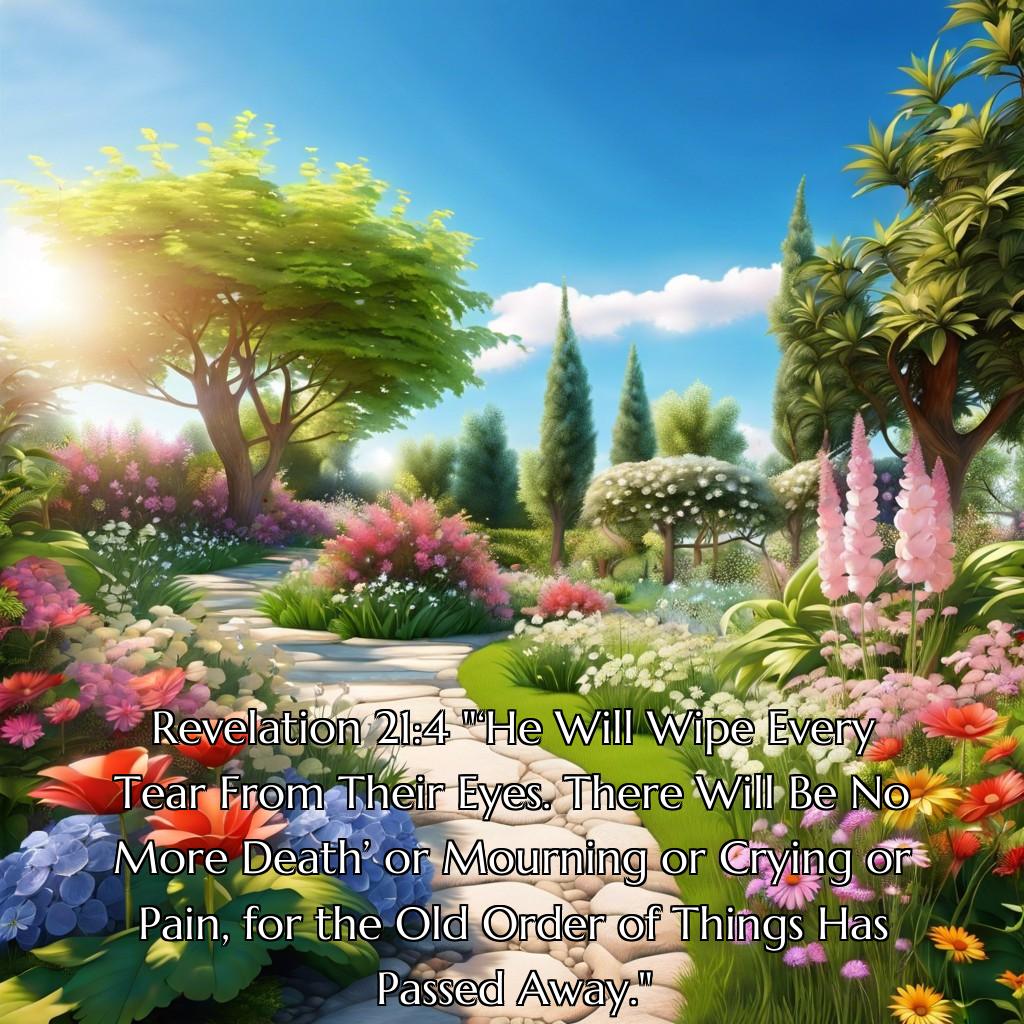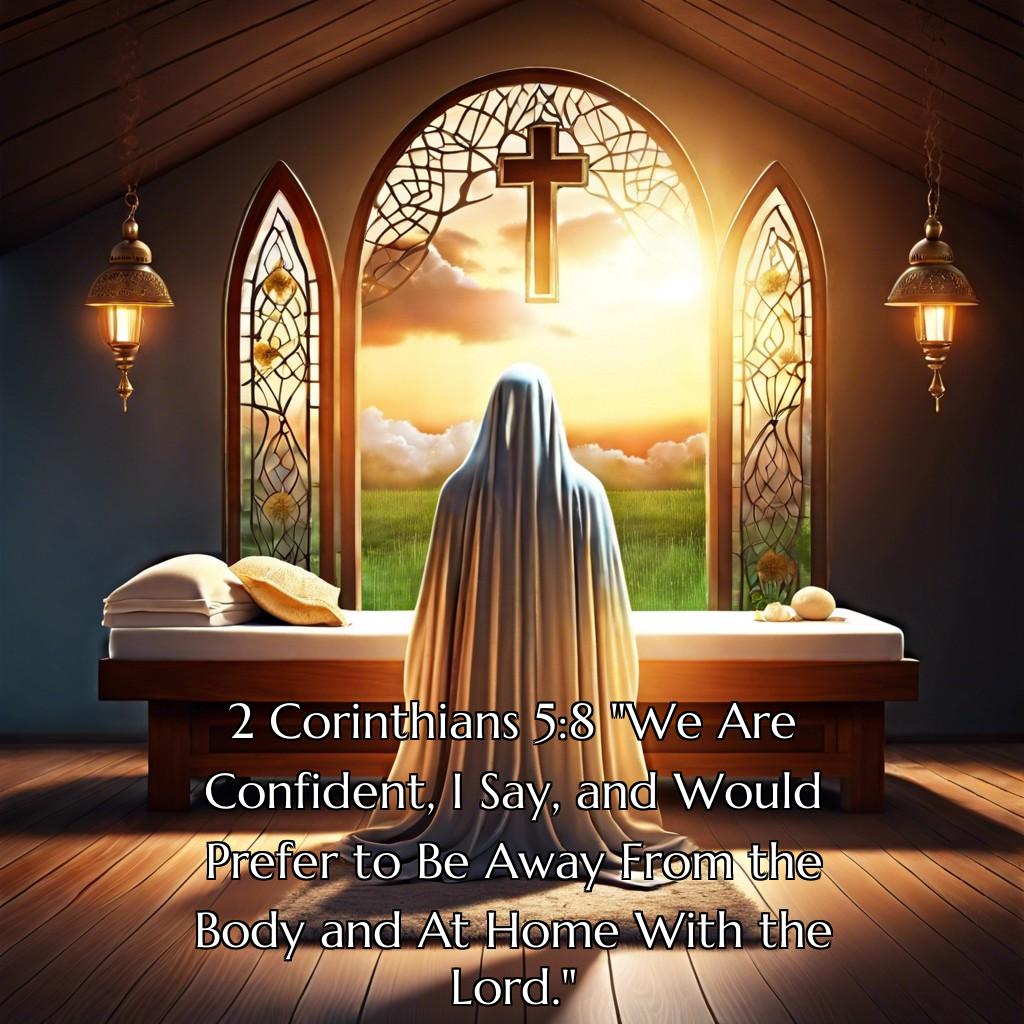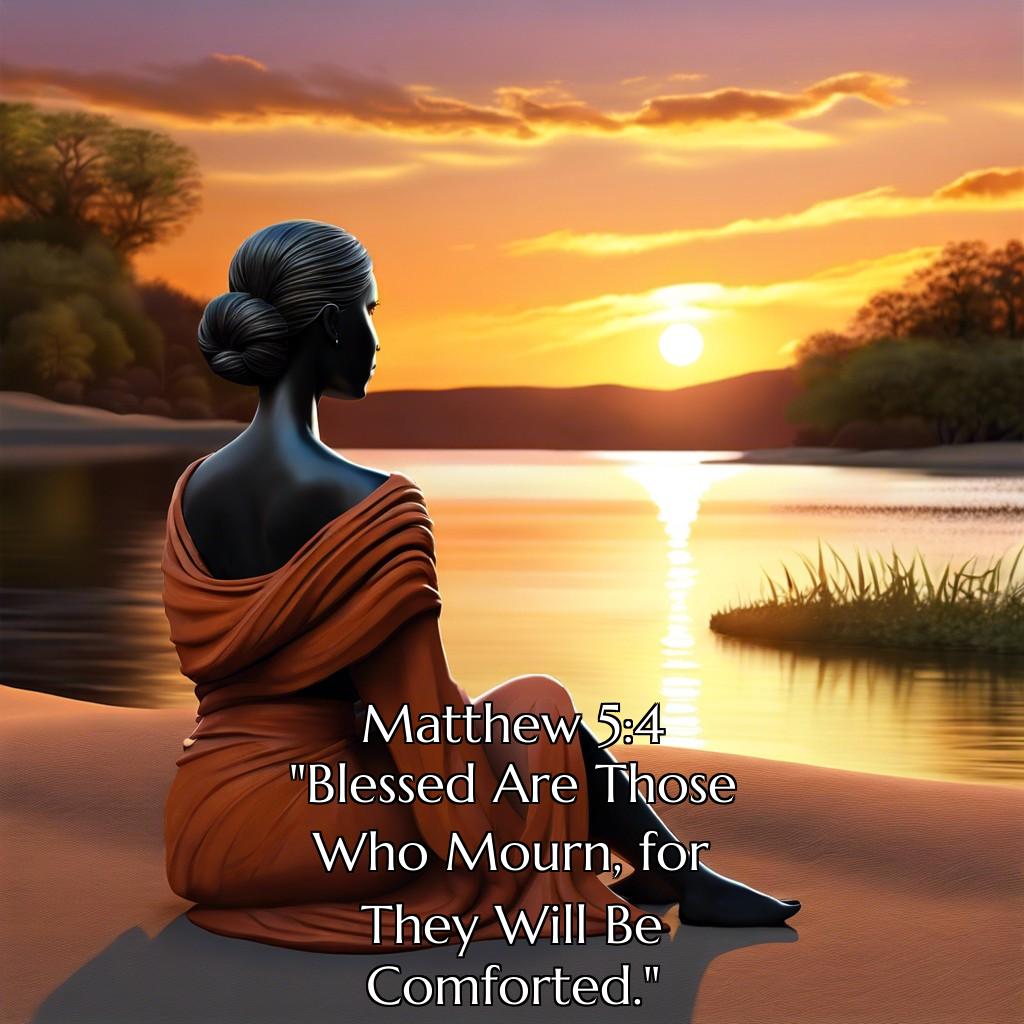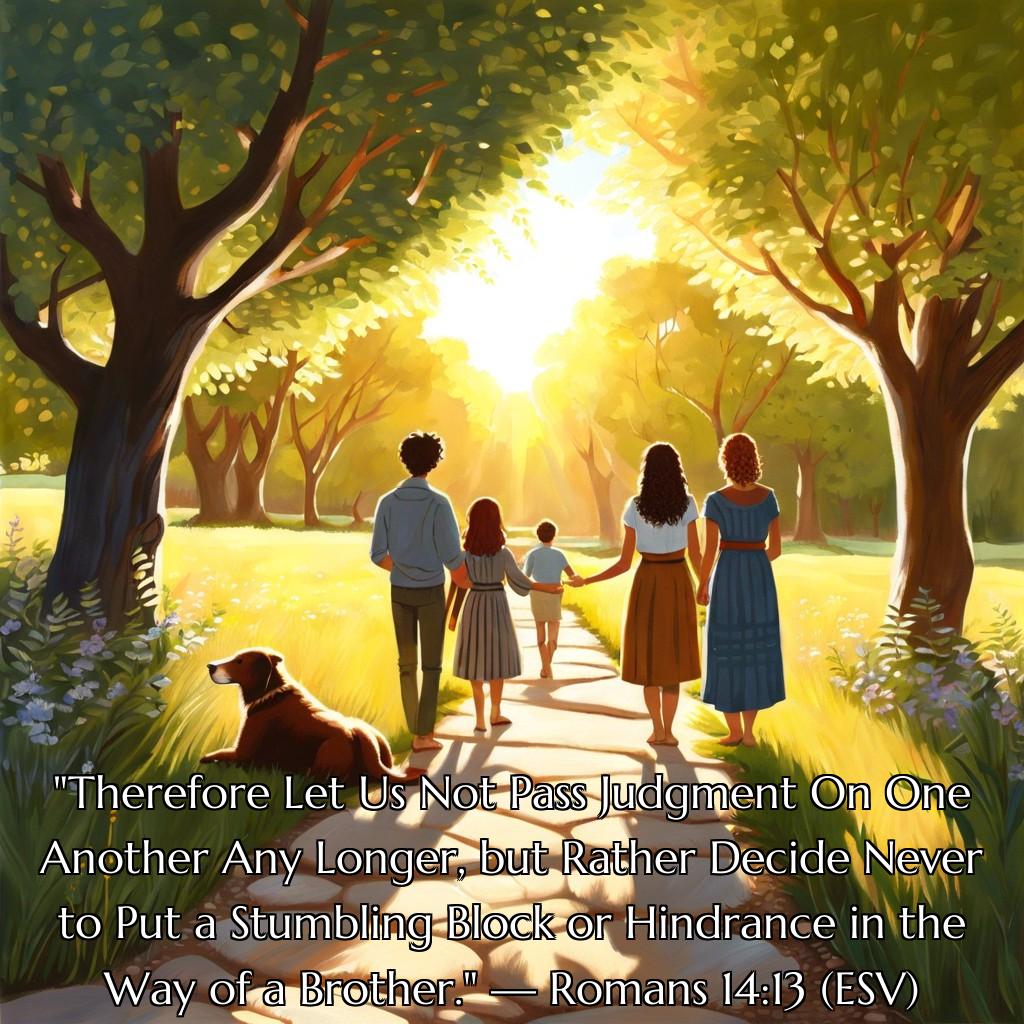Discover meaningful Bible verses that offer comfort and understanding about death.
Facing the topic of death can be daunting, but the Bible offers profound comfort and hope. These verses address the reality of death while illuminating the promise of eternal life and God’s endless support. Explore these passages to find peace and understanding in every season of life and discover the deeper meanings each one holds.
John 14:1-3 “Do Not Let Your Hearts Be Troubled. You Believe in God; Believe Also in Me. My Father’s House Has Many Rooms; If That Were Not So, Would I Have Told You That I Am Going There to Prepare a Place for You? And If I Go and Prepare a Place for You, I Will Come Back and Take You to Be With Me That You Also May Be Where I Am.”

This verse offers immense comfort and reassurance. Jesus encourages his disciples to trust in God and in himself, emphasizing the certainty of an eternal home.
Firstly, “Do not let your hearts be troubled” speaks directly to those experiencing anxiety or fear, urging them to find peace in faith.
Jesus’ mention of “many rooms” in his Father’s house implies abundant space in God’s kingdom for all believers, highlighting an inclusive and welcoming nature.
The promise of preparing a place emphasizes Jesus’ ongoing role in caring for us, even beyond his earthly mission.
Lastly, the assurance of his return to take believers to be with him underscores a personal and intimate relationship with Christ that extends into eternity.
These points collectively transform the daunting concept of death into a passage toward a lovingly prepared, eternal home with Christ.
Psalm 23:4 “Even Though I Walk Through the Darkest Valley, I Will Fear No Evil, for You Are With Me; Your Rod and Your Staff, They Comfort Me.”

This verse is a source of immense comfort and reassurance. The darkest valley often symbolizes the hardest and most challenging times in our lives. Yet, there’s a promise of fearlessness because of divine presence.
- God’s presence: The phrase “for you are with me” highlights the constant companionship of God, offering comfort in times of distress.
- Divine protection: The “rod and staff” aren’t just tools but symbols of guidance and protection. The shepherd uses them to defend and lead the sheep, which is a metaphor for God’s care for us.
- Comfort in adversity: Even when situations seem dire, this verse promises solace and divine reassurance.
It’s a verse rich with imagery and promise, aiming to lessen the fear associated with life’s most troubling periods.
1 Thessalonians 4:13-14 “Brothers and Sisters, We Do Not Want You to Be Uninformed About Those Who Sleep in Death, So That You Do Not Grieve Like the Rest of Mankind, Who Have No Hope. For We Believe That Jesus Died and Rose Again, and So We Believe That God Will Bring With Jesus Those Who Have Fallen Asleep in Him.”

Paul aims to provide comfort and hope to believers regarding death. He distinguishes Christian grief from that of non-believers by emphasizing hope in Jesus’ resurrection.
- Believers have the unique assurance that death is not the end. Jesus’ resurrection is central to this hope.
- Paul uses the term “sleep” to describe death, indicating it’s temporary for believers.
- The resurrection of Jesus guarantees that believers who have died will also be resurrected.
- This perspective transforms grief into a hopeful anticipation of being reunited with departed loved ones in Christ.
Understanding these points can offer solace amid loss, reminding believers of the eternal life promised through Jesus.
Revelation 21:4 “‘He Will Wipe Every Tear From Their Eyes. There Will Be No More Death’ or Mourning or Crying or Pain, for the Old Order of Things Has Passed Away.”

This verse from Revelation promises a future without sorrow or death. It reassures believers that God’s ultimate plan is to eliminate suffering. Here are a few key points to understand its depth:
- Eternal Comfort: Imagine a place where sadness doesn’t exist—a place where God himself wipes away your tears.
- No More Death: Here, death will no longer have power. This assurance can be incredibly comforting to those who mourn.
- End of Pain: Physical, emotional, and spiritual pain will be eradicated. The struggles of the current world will no longer affect us.
- New Beginning: It speaks of a transformation. The “old order,” marked by pain and suffering, will be replaced by something entirely new.
These promises can deeply encourage and comfort anyone facing the harsh realities of death and mourning.
Romans 6:23 “For the Wages of Sin Is Death, but the Gift of God Is Eternal Life in Christ Jesus Our Lord.”

Sin leads to separation from God – a spiritual death.
Paul’s letter to the Romans starkly lays out this truth. Yet, there is hope and redemption.
God offers the astonishing gift of eternal life through Jesus.
Jesus’ sacrifice enables us to bridge that separation.
Receiving this gift is not through our works but through faith in Christ.
It’s a reminder of God’s boundless grace and love for humanity.
2 Corinthians 5:8 “We Are Confident, I Say, and Would Prefer to Be Away From the Body and At Home With the Lord.”

This verse from 2 Corinthians speaks to the assurance believers have about life after death. The apostle Paul contrasts being “at home in the body” with being “at home with the Lord,” suggesting that true belonging for Christians lies beyond this earthly existence.
- The verse highlights:
- Confidence in faith: Believers can be certain about their eternal destination.
- Dual existence: The temporary nature of physical life versus the eternal nature of being with God.
- Hope beyond death: Encouragement that death isn’t an end but a transition to a more profound communion with God.
This perspective offers comfort, especially during times of mourning, by framing death as a passage to a divine reunion.
Matthew 5:4 “Blessed Are Those Who Mourn, for They Will Be Comforted.”

This verse comes from Jesus’ Sermon on the Mount, where He speaks directly to the heart of human experiences. Mourning here extends beyond just grieving a death; it encompasses any deep sorrow or pain. Jesus promises comfort to those who are hurting.
Consider these points:
- Mourning is an acknowledgment of our broken world and our need for God.
- God’s comfort is not just emotional soothing; it often involves community, prayer, and divine peace.
- Mourning leads to a deeper dependency on God, fostering spiritual growth.
- The comfort given is also a reminder of the eternal hope we have through Christ.
The idea is that in the very act of turning to God in our sorrow, we find comfort and strength that surpasses human understanding.
Philippians 1:21 “For to Me, to Live Is Christ and to Die Is Gain.”

Paul speaks powerfully about the Christian perspective on life and death. His words suggest that earthly existence is an opportunity to serve Christ, while death is not an end but a gain. This gain alludes to eternal life with God, free from earthly trials.
- Living for Christ means:
- Serving others in His name
- Spreading His teachings
- Reflecting His love and grace
- Dying as gain implies:
- Entry into eternal peace and joy
- Reunion with God
- Freedom from suffering and sin
Paul’s perspective can be comforting. It encourages Christians to find purpose in their earthly journey and hope in their heavenly destination.
1 Corinthians 15:55-57 “Where, O Death, Is Your Victory? Where, O Death, Is Your Sting? The Sting of Death Is Sin, and the Power of Sin Is the Law. But Thanks Be to God! He Gives Us the Victory Through Our Lord Jesus Christ.”

Paul’s words here vividly capture the triumph believers have over death because of Christ’s victory.
- Key points to consider:
- Defiance of Death: The rhetorical questions emphasize that death no longer holds terror or finality for Christians.
- The Sting of Death: Sin is what gives death its sting, making it painful and fearful.
- Law and Sin: The law highlights sin, which in turn empowers death.
- Victory in Christ: This victory isn’t of our making. It’s a gift from God through Jesus, offering hope and eternal life.
These verses remind us of the hope found in Jesus’s resurrection, transforming death from an end into a transition to eternal life.
Ecclesiastes 3:1-2 “There Is a Time for Everything, and a Season for Every Activity Under the Heavens: a Time to Be Born and a Time to Die, a Time to Plant and a Time to Uproot.”

Ecclesiastes 3:1-2 reminds us of life’s natural rhythms, highlighting life’s cycles. Everything has its appointed time. Life and death are part of this grand design, both significant in God’s creation.
This verse emphasizes:
- Acceptance: Embrace each phase of life without resistance. Every moment has its purpose.
- Balance: Life’s joys and sorrows coexist, teaching us to appreciate the full spectrum of experiences.
- Comfort: Understanding that our time is part of a greater plan can provide peace, especially during difficult periods.
Recognizing that life is a series of divinely appointed seasons can help us live with a sense of purpose and patience.





